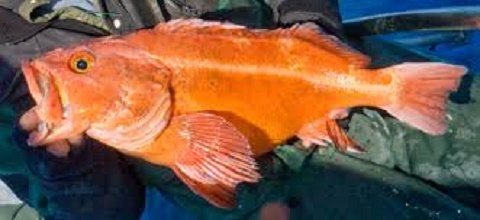Idaho Fish Report
All-depth groundfish fishery reopens Oct. 1

by OR Department of Fish & Wildlife Staff
9-15-2016
Website
09/15/16 -- The increased use of descending devices by halibut anglers was a key factor in contributing to the decision by fish managers to reopen the all-depth groundfish fishery on Oct. 1. The recreational groundfish season on the Oregon coast was closed outside the 20-fathom line July 15 in order to protect Yelloweye rockfish.
“The efforts made by anglers to use the descending device are greatly appreciated and helped us make the decision to reopen the fishery,” said Lynn Mattes, Recreational Groundfish and Halibut Program Leader. “Our goal was to return the sport groundfish fishery to all-depth in October and because of the use of descending devices, we got there.”
Yelloweye rockfish populations along the west coast were declared overfished in 2002 by the National Marine Fisheries Service, and are managed under a federal rebuilding plan that limits harvest and other impacts, allowing the population to return to a healthy size.
ODFW encourages marine anglers to release all prohibited rockfish by using a descending device to safely return the fish to depth. Fish which appear severely bloated can survive after being released at depth according to Mattes. This practice also helps keep the fisheries open by reducing the percentage of released fish that fishery managers count as dead. Using a descending device helps save fish and increases anglers’ fishing opportunities.
There are several types of descending devices that can be purchased at tackle shops. ODFW has distributed some of the devices provided by the Pacific States Marine Fisheries Commission free of charge to help encourage their use, and has a limited number more to hand out at boat ramps and marinas. For more information on rockfish recompression including videos demonstrating how to use descending devices, see dfw.state.or.us/MRP/recompression/index.asp.
“Each successful use of a descending device helps lower the mortality on Yelloweye rockfish,” said Mattes.

